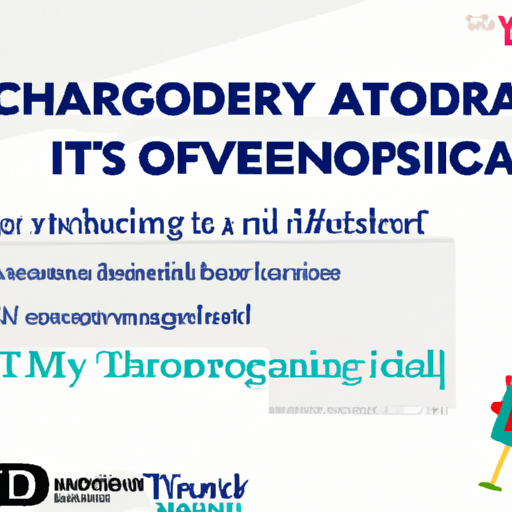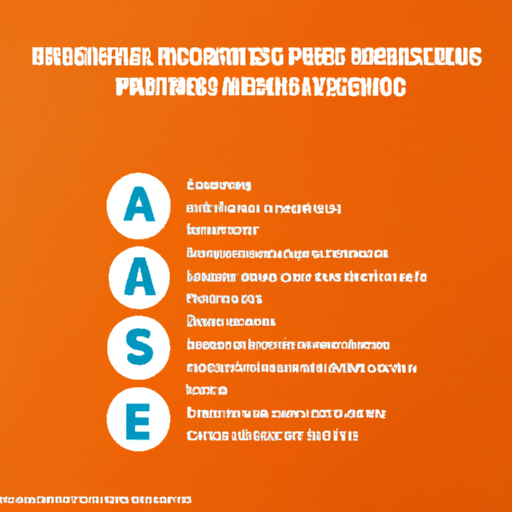
Imagine a world where you can monetize your passion for blogging and get paid for the content you create. Sponsored posts offer a lucrative opportunity for bloggers to earn a significant income by partnering with brands and promoting their products or services. By seamlessly blending promotional content with their authentic voice, bloggers can not only boost their revenue but also provide valuable information to their audience. Dive into the world of sponsored posts and discover how they play a vital role in blogging revenue.

What Are Sponsored Posts?
Sponsored posts are a popular and effective way for bloggers to monetize their content and generate revenue. In simple terms, a sponsored post is a piece of content that a blogger creates in collaboration with a brand or company. The brand pays the blogger to create and publish content that promotes their products, services, or brand message. This collaboration is typically disclosed to the audience, ensuring transparency and compliance with FTC guidelines.
Definition
A sponsored post is a form of advertising in which a blogger or influencer partners with a brand to create content that promotes the brand’s products or services. These posts are typically published on the blogger’s own platform, such as a blog or social media account, and often include a combination of written content, images, videos, or other multimedia.
Types of Sponsored Posts
There are various types of sponsored posts, each with its own format and purpose. Some common types include product reviews, where bloggers share their honest opinions about a product, sponsored giveaways or contests, where bloggers collaborate with brands to reward their audience with prizes, and sponsored tutorials or how-to guides, where bloggers showcase the brand’s product or service in action. These different types of sponsored posts allow bloggers to cater to their audience’s interests and create engaging content that seamlessly integrates the brand’s message.
Benefits of Sponsored Posts
Sponsored posts offer numerous benefits for both bloggers and brands. For bloggers, sponsored posts provide an opportunity to monetize their content and turn their passion into a profitable venture. It allows them to generate revenue and financial stability, making it possible to dedicate more time and resources to their blog. Additionally, sponsored posts often provide bloggers with access to exclusive products or services, allowing them to stay ahead of the curve and provide valuable insights to their audience.
On the other hand, brands benefit from sponsored posts by leveraging the influence and trust that bloggers have established with their audience. By partnering with bloggers who are aligned with their target market, brands can reach a larger and more targeted audience. Sponsored posts also offer a more authentic and engaging way to promote their products or services, as bloggers can provide personal experiences and recommendations, which tend to resonate more with consumers. Overall, sponsored posts create a win-win situation for both bloggers and brands.
Finding Sponsored Post Opportunities
Finding sponsored post opportunities may seem like a daunting task at first, but with the right strategies and resources, it becomes much more manageable. Here are three key methods for finding sponsored post opportunities:
Contacting Brands Directly
One approach to finding sponsored post opportunities is by reaching out to brands directly. Start by identifying brands that are relevant to your niche and have a target audience that aligns with your own. Then, craft a compelling pitch that showcases your expertise, engagement, and the value you can bring to their brand. Personalize each pitch to demonstrate your genuine interest in collaborating with the brand. While this method requires more effort and time, it can lead to direct partnerships and potentially higher rates.
Using Sponsored Post Marketplaces
Another way to find sponsored post opportunities is by utilizing sponsored post marketplaces. These online platforms connect bloggers with brands that are actively seeking collaborations. Simply create an account, fill out your profile, and browse through available opportunities. Sponsored post marketplaces streamline the process by providing a platform where bloggers can find, negotiate, and manage sponsored post deals all in one place. Some popular sponsored post marketplaces include TapInfluence, Blog Meets Brand, and Cooperatize.
Joining Blogger Networks
Lastly, consider joining blogger networks or influencer communities that facilitate connections between bloggers and brands. These networks often have a vetting process to ensure the quality and authenticity of their members. Being part of a trusted blogger network can lead to more sponsored post opportunities, as brands often turn to these networks to find influencers for their campaigns. Additionally, blogger networks may offer educational resources, networking events, and other perks that can further enhance your blogging journey.
Negotiating Sponsorship Deals
Negotiating sponsorship deals is an essential skill for bloggers who want to maximize their earnings and establish fair partnerships with brands. Here are some key aspects to consider when negotiating sponsorship deals:
Determining Your Worth
Before entering into any negotiation, it’s crucial to determine your worth as a blogger. Consider factors such as your audience size, engagement rates, the quality of your content, and the niche you operate in. Evaluate the value you bring to brands and the impact you have on your audience. Knowing your worth will give you the confidence to negotiate fair rates and conditions.
Setting Rates
Setting your rates for sponsored posts can be challenging, especially if you’re new to the blogging industry. Research and benchmark the rates that other bloggers with similar reach and engagement are charging for sponsored content. Take into account the time and effort required to create the content, the reach and influence of your platform, and the exclusivity of the partnership. It’s essential to strike a balance between what is fair for both parties, while also considering the sustainability of your blogging business.
Negotiating Terms and Conditions
When negotiating sponsorship deals, it’s crucial to establish clear terms and conditions. Discuss and agree upon the content format, the number of posts, the use of brand assets, the timeline for publication, and any exclusivity agreements. Ensure that both you and the brand are aligned on expectations, deliverables, and deadlines. Be open to negotiations and find a middle ground that benefits both parties. Building strong and transparent relationships with brands is vital for long-term success in the sponsored post industry.
Creating Engaging Sponsored Content
Once you’ve secured a sponsored post opportunity, it’s time to create engaging content that resonates with your audience while effectively promoting the brand. Here are some tips for creating compelling sponsored content:
Maintaining Authenticity
One of the most critical aspects of creating sponsored content is maintaining authenticity. Your audience follows you because they trust your opinions and value your unique perspective. Be transparent about the sponsorship and ensure that your content remains genuine and aligned with your brand’s voice. Craft the content in a way that seamlessly integrates the brand’s message into your usual content style. This way, your audience will appreciate the authenticity of the sponsored post and be more receptive to it.
Understanding Brand Guidelines
When creating sponsored content, it’s essential to understand and adhere to the brand’s guidelines. Brands often have specific requirements regarding the content format, tone, messaging, and brand assets. Familiarize yourself with these guidelines and ensure that your content meets their expectations while staying true to your own style. Clear communication with the brand throughout the content creation process is crucial to align both parties’ visions and create a successful partnership.
Ensuring Quality and Relevance
Maintaining the quality of your content is crucial, even when it’s sponsored. Avoid creating content that feels like a blatant advertisement. Instead, focus on providing value and relevance to your audience. Share your honest opinions, personal experiences, and showcase how the product or service can genuinely benefit your audience. By focusing on quality and relevance, you’ll create sponsored content that adds value and resonates with your audience, making it more likely to drive engagement and conversions.

Promoting Sponsored Posts
Once you’ve created the perfect sponsored content, it’s time to promote it effectively to maximize its reach and impact. Consider the following strategies for promoting your sponsored posts:
Leveraging Social Media Platforms
Social media platforms are powerful tools for promoting sponsored posts. Share snippets, teasers, or behind-the-scenes content on platforms like Instagram, Twitter, or Facebook to pique your audience’s curiosity. Use relevant hashtags, tag the brand, and engage with your audience by asking questions or encouraging them to share their thoughts. Additionally, consider leveraging social media ads to further increase the visibility of your sponsored posts and reach a broader audience.
Utilizing Email Marketing
Don’t underestimate the power of your email list. Email marketing is an effective way to promote your sponsored posts and engage with your most loyal audience members. Craft a compelling email that highlights the value and relevance of the content and encourage your subscribers to visit your blog or social media platforms to learn more. Personalize the email and make it clear that the sponsored post offers genuine value to your audience.
Collaborating with Other Bloggers
Collaborating with other bloggers can expand the reach of your sponsored posts and introduce your content to new audiences. Reach out to bloggers in similar niches or complementary industries and explore potential collaborations. This can include guest posting on their blog, hosting joint giveaways or contests, or cross-promoting each other’s content. By tapping into each other’s networks, you can amplify the impact of your sponsored posts and create mutually beneficial relationships.
Measuring the Success of Sponsored Posts
To gauge the effectiveness of your sponsored posts and demonstrate their value to brands, it’s essential to measure their success. Here are some key metrics to consider when evaluating the performance of your sponsored posts:
Monitoring Traffic and Engagement Metrics
Track the traffic and engagement metrics of your sponsored posts to assess their reach and impact. Focus on metrics such as website views, click-through rates, time spent on page, comments, likes, and shares. These metrics provide insights into how effectively your sponsored post resonates with your audience and whether it drives traffic to the brand’s website or social media platforms. Analyzing these metrics will help you identify areas for improvement and showcase the value you bring to brands.
Tracking Conversions and Sales
If the goal of the sponsored post is to drive conversions or sales, it’s important to track these metrics. Use affiliate links, unique discount codes, or tracking pixels to attribute conversions or sales directly to your sponsored content. This data allows you to demonstrate the direct impact your content has on the brand’s bottom line and provides a tangible measurement of its success.
Obtaining Feedback from Brands
Alongside analyzing metrics, it’s valuable to obtain feedback from the brands you work with. Ask them for their input on how the sponsored post performed from their perspective. Did they receive an increase in traffic, sales, or brand recognition? Understanding and documenting brand feedback can help you improve future sponsored posts and showcase your ability to deliver results.

Maintaining Transparency and FTC Compliance
Maintaining transparency and complying with FTC guidelines are essential when engaging in sponsored posts. Here’s what you need to know:
Disclosing Sponsored Content
Disclosing your sponsored content is not only ethical but also mandatory according to FTC guidelines. Clearly and conspicuously disclose any material connection you have with the brand or products you are promoting. This can be done through a disclosure statement at the beginning or end of the sponsored post, or by using hashtags such as #ad, #sponsored, or #partnership in your social media posts. Failure to disclose sponsored content can lead to legal consequences and damage your credibility as a blogger.
Understanding FTC Guidelines
Familiarize yourself with the FTC guidelines to ensure compliance and transparency in your sponsored posts. These guidelines provide detailed information on how to disclose sponsored content, what constitutes a material connection, and what constitutes deceptive advertising practices. Stay up to date with any changes or updates to the guidelines to ensure your sponsored posts meet the required standards.
Avoiding Ethical Dilemmas
Ethical considerations play a significant role in sponsored posts. It’s essential to choose brands and products that align with your values and that you genuinely believe in. Avoid promoting products that you wouldn’t personally use or endorse. Be transparent with your audience about the reasons for collaborating with a brand and maintain your integrity by providing honest and unbiased opinions in your sponsored content. By doing so, you’ll build trust with your audience and cement your reputation as a blogger who values authenticity.
Building Long-Term Relationships with Brands
Establishing long-term relationships with brands is beneficial for both bloggers and brands. Here are some strategies for nurturing these relationships:
Providing Value Beyond Sponsored Posts
Go above and beyond by providing value to the brands you work with beyond sponsored posts. Offer additional exposure by sharing their content or mentioning them in relevant blog articles. Provide feedback, suggestions, or even ideas for future campaigns. Developing a genuine interest in the brand and building a mutually beneficial relationship will make you a go-to blogger for future collaborations.
Offering Additional Promotion Opportunities
In addition to sponsored posts, offer brands additional promotion opportunities. This can include hosting brand events, sharing exclusive offers with your audience, or co-creating content with the brand. By offering these opportunities, you demonstrate your commitment to the brand’s success and provide valuable exposure to your audience.
Communicating Effectively
Effective communication is key to building long-term relationships with brands. Keep channels of communication open and be responsive and professional in your interactions. Clearly communicate expectations, timelines, and any issues that arise. Regularly update brands on the performance of your sponsored posts and provide detailed reports or analytics to showcase their impact. Consistent and transparent communication fosters trust and strengthens relationships with brands.

Navigating Challenges and Pitfalls
While sponsored posts offer numerous benefits, they can also come with challenges and potential pitfalls. Here’s how to navigate them:
Dealing with Negative Feedback
Negative feedback is unavoidable in the blogging world. It’s essential to handle it professionally and constructively. If you receive negative feedback about a sponsored post, address it openly and transparently. Acknowledge the feedback and provide meaningful responses. Use it as an opportunity to improve and refine your content. Remember, constructive criticism can lead to growth and ultimately strengthen your relationship with brands.
Managing Conflicting Brand Partnerships
It’s not uncommon for bloggers to work with multiple brands in the same niche. However, it’s crucial to manage these partnerships carefully to avoid conflicts of interest or brand dilution. Be transparent with all parties involved about your existing collaborations. Ensure that you prioritize your audience’s interests and create content that remains authentic and unbiased. By setting clear expectations and maintaining professionalism, you can navigate conflicting brand partnerships smoothly.
Avoiding Over-commercialization
While sponsored posts are a means of generating revenue, it’s essential to strike a balance and avoid over-commercialization. Your audience follows you because they value your expertise and authentic content. Bombarding them with excessive sponsored posts can diminish the trust and engagement you’ve built. Ensure that sponsored posts are in line with your regular content and add value to your audience’s experience. By finding this balance, you’ll maintain the loyalty and trust of your audience.
Evolving Trends and Future Prospects
The world of sponsored posts is constantly evolving, and staying informed about emerging trends and future prospects is crucial for bloggers. Here are a few notable trends to consider:
Influence of Influencer Marketing
Influencer marketing continues to have a significant impact on brands’ marketing strategies. As a blogger, this presents an opportunity to position yourself as a valuable partner for brands seeking to tap into your audience and influence. Keep an eye on the evolving landscape of influencer marketing and adapt your strategies to align with the shifting preferences and expectations of brands and audiences alike.
Shift towards Micro-influencers
Micro-influencers, bloggers with smaller but highly engaged audiences, are gaining traction in the sponsored post industry. Brands are recognizing the value micro-influencers bring in terms of niche expertise and authentic connections with their audience. As a blogger, consider the benefits of positioning yourself as a micro-influencer in your niche, emphasizing the quality of your audience over its size. This shift opens up opportunities for bloggers with dedicated followings to secure sponsored posts and build meaningful partnerships.
Emerging Platforms and Technologies
The digital landscape is constantly evolving, and new platforms and technologies provide fresh opportunities for bloggers and brands. Keep an eye on emerging platforms, such as TikTok or Clubhouse, that may present untapped markets and novel ways to create sponsored content. Additionally, stay informed about emerging technologies, such as augmented reality or virtual reality, that can revolutionize the ways brands collaborate with bloggers. By embracing new platforms and technologies, you can stay at the forefront of the sponsored post industry and capitalize on emerging trends.



